Seeking help add an addiction treatment center to overcome a drug or alcohol addiction is a vital first step on a journey to lasting health and wellness. However, many people do not realize that treatment is only the beginning. Addiction is referred to as a chronic relapsing illness. This means that despite seeking help to overcome the initial struggles you experience with drugs or alcohol, there is a potential that you will experience relapse after completing treatment. In fact, data from the National Institute on Drug Abuse indicates that 40-60% of substance use disorders relapse after treatment. Relapse signifies a sign to resume, modify, or consider new treatment. Aftercare programs can be a great solution, but what is aftercare?
Aftercare programs are designed to help reduce the chances of relapse. When included as part of a comprehensive treatment program, a well-planned aftercare program can provide you with the resources and tools you need to practice and reinforce the trigger management and relapse prevention tools you learned as part of your therapeutic program. There are many components to aftercare, and each serves an essential purpose. Call 877.328.5682 to learn more about our rehab aftercare program in California.
What Is Aftercare in Addiction Treatment?
Aftercare programs are designed to provide people in new recovery a way to ease slowly and safely back into their day-to-day obligations and responsibilities as their treatment program at a professional rehab ends. A comprehensive aftercare program is a uniquely and individually designed program that begins immediately at the end of a primary addiction treatment program. A proper aftercare program will provide a seamless transition from a heavily monitored treatment environment to the freedom of returning home and to your community.
A good aftercare program is explicitly designed to address your unique support and care needs. Your aftercare program must ensure you have access to the tools and guidance to manage triggers and challenges that inevitably arise in the days, weeks, and months following treatment. The Substance Abuse and Mental Health Services Administration suggests that a successful aftercare plan supports ongoing long-term recovery by using tested evidence-based practices and support services to help you maintain the motivation you need to stay sober as you progress in your recovery.
The Importance of Aftercare Programs
Aftercare programs are a vital part of the addiction treatment process. Again, relapse is an all too common occurrence among people early in recovery; however, participating in an aftercare program and continuing therapy can help reduce your risk. The most effective aftercare programs are those you transition to directly after completing an addiction treatment program. Aftercare programs provide a comfortable yet supportive environment where you can speak openly about your temptations, accomplishments, fears, and worries as you continue your recovery journey.
Another benefit to aftercare is the ability to develop strong support systems. As part of therapy and group environments that are often integrated into the aftercare programs, you will connect with peers who share similar struggles. In the days, weeks, and months to come, these are the individuals you can turn to when you need support or help to stay focused on your sobriety. A strong peer support structure that allows you to feel comfortable admitting your struggles or even admitting you have relapsed can ensure you quickly return to treatment and return to recovery.
Tips for Avoiding Relapse After Treatment
Addiction treatment and subsequent relapse prevention programs look different for everyone. Because addiction is a disease that is unique to the individual, your relapse prevention plan must be equally as uniquely suited to your needs. However, there are several tips you can use to reduce your potential for relapse after completing addiction treatment. These include:
- Consider spending time in a sober living community or sober living home.
- Continue with ongoing individual, group, and family therapy sessions.
- Attend peer support group meetings (examples include 12-step meetings and similar) in your area.
- Participate in sober activities as part of a sober living community or with sober peers from your aftercare program.
- Find a sober companion. A sober companion is someone who shares the same goals as you and will help hold you accountable for your sobriety.
- Seek help if you need it.
If you have relapsed or are concerned about relapse, it is essential to seek help immediately. The sooner you get back to treatment and get yourself back on track with your sobriety, the more effective follow-up treatment and aftercare will be. Unfortunately, relapse can lead to significant medical and mental health struggles, including overdose. Therefore, seeking early and effective follow-up addiction treatment during relapse is essential.
Aftercare at California Centers for Recovery
Gaining a long-term partner for recovery is critical for success. At California Centers for Recovery, we are proud to walk by your side long after you leave one of our programs. With 12-step meetings, individual counseling, and group therapy, you can be sure support is just a click or call away.
Aftercare is a critical part of all of our detox programs, including:
- Alcohol detox – Staying sober after detoxing from alcohol requires ongoing commitment and dedication to sobriety. With our alcohol detox program, we provide support to help you stay on track.
- Crystal meth detox – Detoxing from crystal meth is no easy feat. Our aftercare program includes relapse prevention and tools to help you stay on the path of recovery.
- Cocaine detox – As one of the most difficult substances to detox from, our cocaine detox program offers a variety of aftercare services.
- Heroin detox – Heroin is one of the most addictive drugs and requires consistent support to help you stay sober. Our relapse prevention plan helps you create a path toward long-term sobriety.
- Benzo detox – Benzodiazepines are some of the most complex and dangerous drugs to detox from. Our aftercare program includes both psychological and pharmacological treatments for your success.
- Opiate detox – Opiates are dangerous and require ongoing support to stay sober. Aftercare is essential in our opiate detox program, including 12-step meetings and individual counseling.
Now that you know the answer to “what is aftercare?” it’s time to get help. Contact us today by calling 877.328.5682. Our admissions team can help you learn more about our addiction treatment programs and aftercare planning as part of your recovery.











